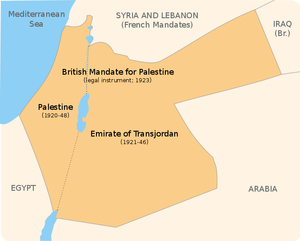 No sooner do we read of one Liberal Party’s candidate being dumped by his party leader for suggesting that there is no place for Muslims in the Australian parliament, than we read of another Liberal Party candidate attacking the “ungodly” Labor leader and PM for being an atheist — and getting away with it! (The Liberal Party in Australia, to oversimplify somewhat, correlates with the Conservatives in the UK and the Republicans in the US.)
No sooner do we read of one Liberal Party’s candidate being dumped by his party leader for suggesting that there is no place for Muslims in the Australian parliament, than we read of another Liberal Party candidate attacking the “ungodly” Labor leader and PM for being an atheist — and getting away with it! (The Liberal Party in Australia, to oversimplify somewhat, correlates with the Conservatives in the UK and the Republicans in the US.)
So what’s the lesson here? It’s politically correct at election time to be seen as tolerant towards Muslims; but as for being an atheist. . . ? Who cares?
Actually I don’t mind this approach to criticism of atheists. Let it all hang out. Let everyone see where everyone stands. It’s no big deal. It’s kind of funny to have politicians get up and rave about Australia being built on Christian values and how they always expect a “godly” leader. Australia? Founded on convicts, lashings, prostitution, petty tyrants among the good ‘uns, rum rebellion, — oh, and an Anglican pastor to keep it all in check? What’s the ratio of churchgoers to non-practicing Christians and “others” in Australia?
I suspect the Liberal Party leader’s decision to ignore the atheist jibe was quite healthy and a “true blue” Aussie response. I’d hate to see political correctness go mad and send to the guillotine anyone who raves about not believing in god and decrying how a godless prime minister simply cannot be a “godly ruler” etc. All a bit of a laugh for most in the audience.
It is the season, however, to be prudent with respect to Muslims. Hate crimes and bigotry and all that are all too real — it goes without saying. (Whoever planted a bomb outside an atheist’s convention in Australia?)
It is still real enough for a Liberal candidate to be quoted as saying that just one Muslim in Parliament must be seen as a march towards the day when Parliament will be all-Muslim! But of course, the mere fact that the sight of one of them in the “wrong place” leaves him down the slippery slope into nightmares of a Taliban takeover of Australia, does not mean he has anything against Muslims personally.
Which leaves me in a delicate position at times. When I was once arranging for a leading State Muslim to conduct a public presentation to a general audience, I found myself being offered a copy of the Koran. As a gesture of good-will I accepted it, but later I had the misfortune to read it. It left the taste in my mouth of being just as mind-controlling and fear and authority obsessed as the Jewish and Christian books, only more blunt and obvious about it. So there I was, finding myself in a situation where I was seeking to foster community tolerance among two religious groups, Christians and Muslims, yet ironically having no personal sympathy or time for either of them!
As far as their beliefs were concerned, I saw (still do see) both as potentially harmful psychologically to individuals who took them too seriously. When I see some humanist scholars advocate a humanism that embraces the religiously minded as well, I do feel some revulsion. What has the anti-intellectualism at the heart of Christianity and Islam (and Judaism) to do with humanistic values? Why on earth does “spirituality” or the sense of the poetic and mystery and awe of life have to be tied exclusively to religion of any kind? But I also find myself recoiling from a few of the anti-Muslim statements of some such as Harris and Hitchens. Sure I have no time for the Muslim religion either, but these authors do seem to be unable to tease out the geopolitical issues from the more universal religious concepts.
So I decided to focus entirely on the project I had got myself mixed up with as an entirely “social enterprise”. Strictly a civil service.
We’ll probably be stuck with religion as long as we will be stuck with astrology, witchcraft and the occult. If one can’t beat them, the least one can do, I guess, is to support any endeavour that promotes mutual understanding and respect.


